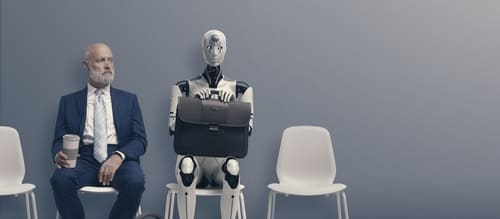Can Images Created With AI Lead to Criminal Charges?
 Artificial intelligence (AI) has been a topic that has received a great deal of attention over the past few years. Tools that allow people to easily generate text and images have been used in many ways, and some of these uses have raised concerns about people’s safety. AI may be used to create "deepfake" images and videos that appear to depict real people, and this has led to pornographic materials being released to the public without the consent of the people depicted. As more and more people are affected by these issues, state laws are being updated to impose criminal charges in these situations.
Artificial intelligence (AI) has been a topic that has received a great deal of attention over the past few years. Tools that allow people to easily generate text and images have been used in many ways, and some of these uses have raised concerns about people’s safety. AI may be used to create "deepfake" images and videos that appear to depict real people, and this has led to pornographic materials being released to the public without the consent of the people depicted. As more and more people are affected by these issues, state laws are being updated to impose criminal charges in these situations.
As new laws are created or existing laws are updated, understanding the potential criminal charges that may apply when people share images or videos online can be confusing. For those who have been accused of engaging in these types of activities, it is crucial to work with an attorney who understands how these laws will affect them. A skilled lawyer can provide a strong defense against criminal charges involving sharing pornographic materials or private information.
Updates to Laws Addressing Computer-Generated Materials
As AI tools have become more accessible and easy to use, they have been used to create a variety of materials that may be considered illegal. Existing images or videos of people may be manipulated or combined with pornographic materials, making it appear as if they have posed for nude photos or have been filmed engaging in sex acts. While these issues have often affected celebrities in the past, the AI tools that are now available may allow pornographic materials to be created that depict anyone.
While many states have laws that are meant to address "revenge pornography," which involves the release of sexually explicit images or videos without a person’s consent, these laws may not necessarily apply to computer-generated materials. To address this issue, states are taking steps to update their laws and prohibit deepfake pornography or AI-generated materials. Most recently, the Pennsylvania Senate passed a bill that would include AI-generated images and videos when imposing criminal charges for the non-consensual sharing of pornographic materials.
AI-generated images and videos have also become an issue in cases involving child pornography. While creating, possessing, or sharing sexually explicit materials depicting minors is strictly illegal, there has been some question about whether computer-generated images may be considered child pornography. The Pennsylvania bill and other state laws have addressed this issue by specifying that images and videos generated using AI fall under the definition of child pornography. While some laws specify that materials that appear to depict an identifiable minor are illegal, other laws prohibit any computer-generated materials that appear to depict children.
Contact Our Hartford Criminal Defense Lawyer
Understanding the specific laws that apply to AI-generated images and deepfake pornography can be difficult. As new technologies become available and new laws are passed, people may run afoul of the law even when they do not realize that they are doing anything illegal. For those who may face criminal charges related to child pornography, revenge pornography, or other types of materials, an experienced lawyer can provide invaluable legal help. At Woolf & Ross Law Firm, LLC, our Connecticut criminal defense attorney can explain how state laws will apply in a specific situation, and we can help develop defense strategies to ensure that a case can be resolved successfully. To set up a free consultation and learn how we can assist in these cases, contact us at 860-290-8690.






